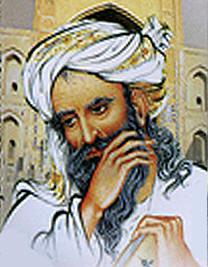Question:
Due to my interest in ‘Practical Irfan’, and the fact that I hear of so many great scholars having studied the works of Khwaja Abdullah al-Ansari, I purchased a copy of the book “Stations of the Wayfarers” which has the Arabic with English translation. The book is published through a non-Shia organisation and I noticed that in the first chapter of the book Sheikh al-Ansari quotes from people such as Abu Horayrah.
I checked the Arabic text and even though my Arabic is very limited, I can see that in my copy his name is mentioned on several occasions. I have to say that this made me very disappointed and confused.
I have heard that one cannot travel successfully towards Allah (swt) without Ahlul Bayt (as). But I’m not sure how to equate someone with the reputation of Khwaja Al-Ansari as being a follower of Abu Horayrah.
I am aware that Sunnis say Khwaja Al-Ansari was a follower of their school of thought, but I find it hard to believe that our great scholars would traverse their path towards Allah (swt) under the guidance of someone who holds Abu Horayrah in such high regard. What is your take on this?
Answer:
First of all thank you very much for your question and may God bless you for your inquiry. In fact, your question is a very valid and common question. Please consider the following points:
1. A mere narration from Abu Horayrah is not an issue. Many of our great scholars have often quoted Prophetic narrations through Abu Horayrah. For example, you’ll see many narrations in the books of Sheikh Al-Sadooq through Abu Horayrah. There is no doubt that he was one of the fabricators (of hadith), but that does not mean all his narrations are fabricated. Therefore, on principle the famous opinion among our scholars is that it is permissible to quote from him and other Sunni narrators on moral issues or any issue that is not contrary to our beliefs. Thus, selective narration from him and similar narrators is a common practice among our Shi’a scholars. For example, the Hadith that Khawaja Abdullah narrated in the introduction of his book through Abu Horayrah is mentioned by Shi’a scholars too. Seyyed Ali Khan al-Madani (one of our eminent scholars in the 12th Century A.H) has quoted the Hadith in his explanation of ‘al-Sahifah al-Sajjadiyah’, as Imam Sajjad (a.s) in his 3rd supplication refers to the Hadith.
2. Khwaja Abdullah al-Ansari lived in a predominately Sunni area, and as such, it seems he naturally appears as a Sunni scholar. However, I made quite a comprehensive research some years ago on his books and found his theological opinions very similar in many instances with the Shi’a view. For example, his stance on ‘determinism or freewill’ is exactly what the Imams of Ahlul-Bayt (a.s) have instructed. In fact, he has written a book against the theological views of both the ‘al-Ash’ari & al-Mo’tazeli’ (the only two ancient Sunni theological schools). Thus, some of our scholars have suggested that he was a Shi’a practicing Taqiyah!
3. Although there is no literature from him on Imamat or jurisprudential issues in order for us to determine his school of thought, I personally find it difficult to accept that he was a Shi’a -at least in the meaning we understand today. There are parts in ‘Manazelu-Saerin’ (a book by Khwaja Abdullah) that are more compatible with the Sunni belief, such as his views on some of the Prophets in Station 50, notwithstanding that unfortunately some of our scholars by and large hold the same opinion too!
4. In general, I believe the fair and valid approach is the suggestion of the late Ayatullah Bahjat: “Whatever we hear from other than the Ma’soomin, we examine it with the confirmed teachings of Ahlul-Bayt (a.s). We take anything compatible with their teachings, and discard anything that is contrary to their teachings, be it from a Shi’a or Sunni scholar.” Therefore, I firmly believe those who are not well versed with the teachings of Ahlul-Bayt (a.s) should never study such books without a teacher. In our ‘Practical Irfan’ sessions (Editor: that can be found in the ‘eHawza’) in which we use the text of Manazelu-Saerin, one can acknowledge that in most of the instances this book is only an excuse for our discussions as we have very selectively and carefully taken from it.
May God keep us on the Right Path.
Answered by: Sheikh Mansour Leghaei



